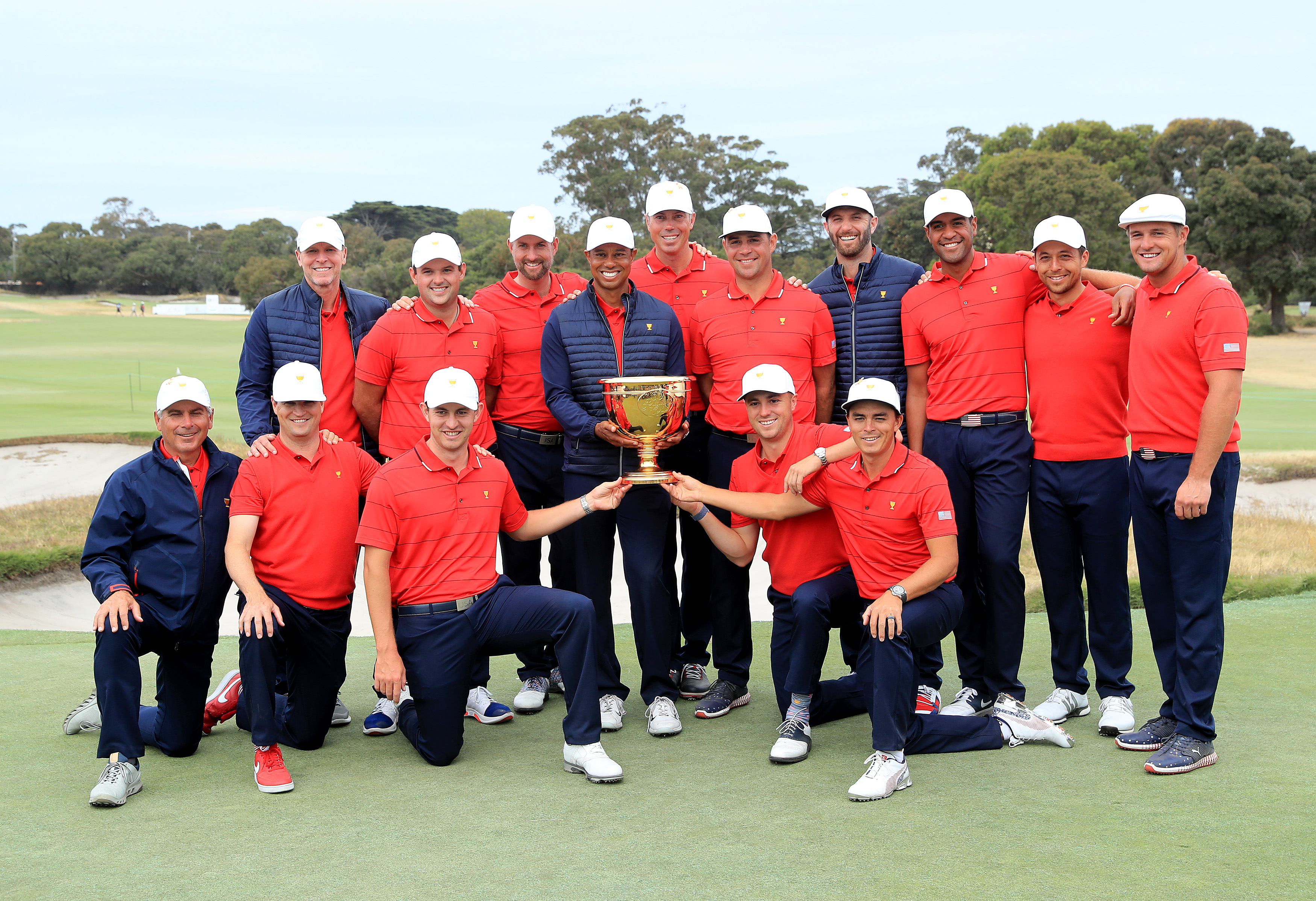
The Presidents Cup returns for its 15th edition this year after 12 US wins, one International triumph 26 years ago and a solitary tie in 2023.
There have been calls for the Presidents Cup to be mixed or even scrapped completely due to the USA's dominance.
So should it be scrapped? Jeremy Ellwood discusses...
Why would anyone even suggest such a drastic course of action?
Why would anyone even suggest such a drastic course of action?
It may sound harsh, but since the inaugural event in 1994, the International team has managed just one victory and one tie while the American team has won 12 times, including nine straight from 2005.
It is 26 years since the International team’s solitary success in 1998 at Royal Melbourne under the captaincy of the late Peter Thomson.
Have any of those many International defeats been close or not?

Yes. After a convincing American victory in 1994, the 1996 staging was close, with the International team winning Saturday’s matches 7-3 to trail by just one heading into the singles. However, they couldn’t quite get it done on Sunday, losing 16.5-15.5 overall.
Since then, however, there have been several one-sided affairs and a couple of routs, with just 2003’s tie and the 2015 and 2019 contests being closer than a two-point difference.
Doesn’t that suggest the tide may be turning in the Presidents Cup?
Possibly, but the margins of defeat in the 2017 and 2022 events have still been eight and five points respectively.
The Ryder Cup followed a similar path for many years and look where that is now...
True. From 1927 to 1977 you could argue that the level of American Ryder Cup dominance makes the Presidents Cup look nip and tuck – 22 victories, one tie and just three losses. There have now been 22 matches since Europe came on board in 1979 and the figures since then are nine wins to America, 12 to Europe and one tie.
But this came about because there was a further source of players to draw from as new stars from continental Europe had arrived on the scene. When your team is already effectively the rest of the world, there is nowhere else to turn.
Why has the International team struggled so much?

It’s hard to say as they are all great players. You could argue that trying to get players from different countries to gel is a harder task than with 12 players from one country, but that hasn’t stopped the European team from succeeding in the Ryder Cup.
The American teams have invariably held a significant world ranking superiority and that, ultimately, appears to be just too much to overcome. However, again, that hasn’t stopped European Ryder Cup teams that are often weaker on paper from defying the odds.
This year, a ban on LIV players will also leave Mike Weir’s International team below full strength, with the likes of Cam Smith, Louis Oosthuizen and Joaquin Niemann ineligible.
Does it matter that the Presidents Cup is so one-sided?
You could argue that fans still get to watch lots of top-quality match-play golf, and that’s a good thing. But if the result becomes too predictable, interest can wane.
Assuming the Cup won’t be scrapped, it is surely vital that the LIV ban is resolved for next time so the International team can field its 12 strongest players.







